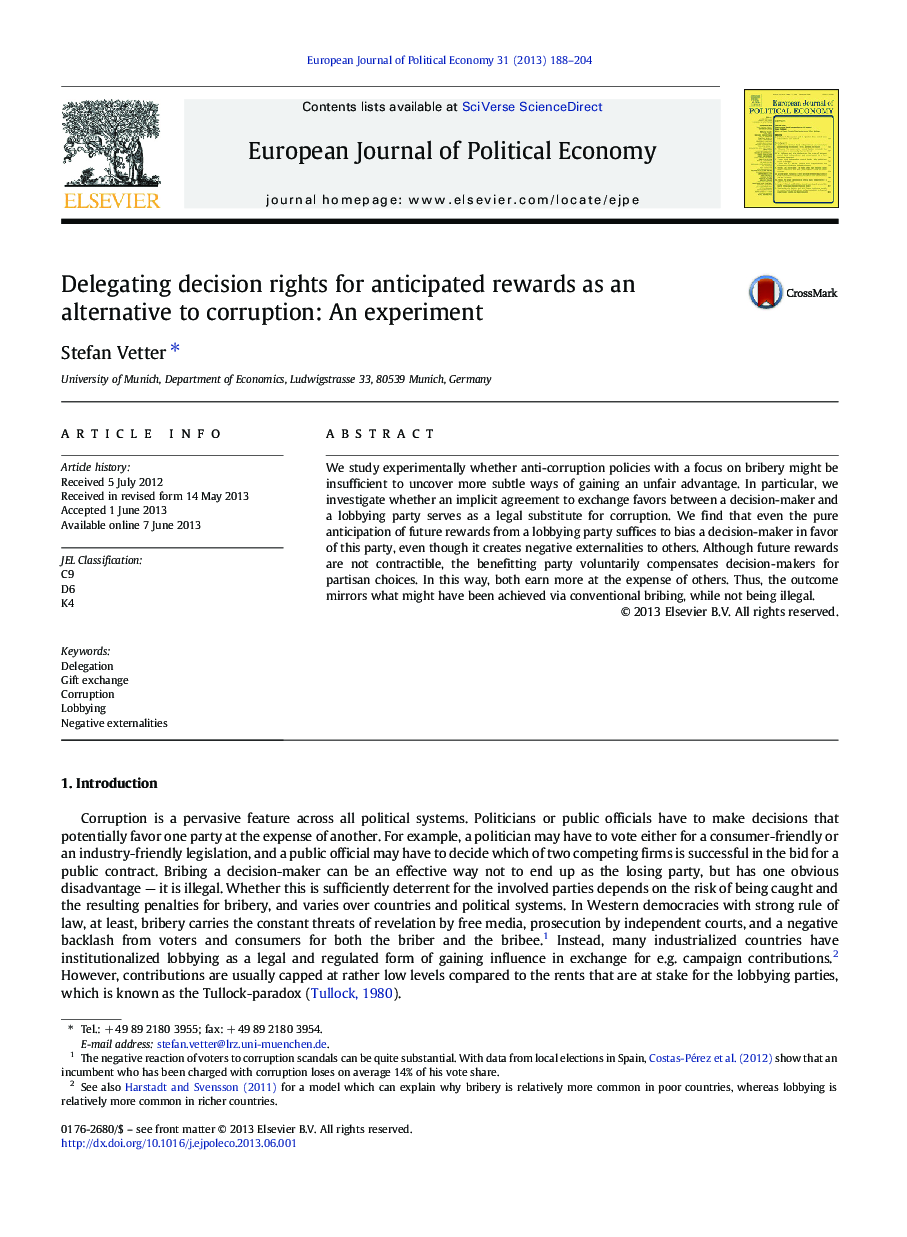| Article ID | Journal | Published Year | Pages | File Type |
|---|---|---|---|---|
| 5067955 | European Journal of Political Economy | 2013 | 17 Pages |
Abstract
We study experimentally whether anti-corruption policies with a focus on bribery might be insufficient to uncover more subtle ways of gaining an unfair advantage. In particular, we investigate whether an implicit agreement to exchange favors between a decision-maker and a lobbying party serves as a legal substitute for corruption. We find that even the pure anticipation of future rewards from a lobbying party suffices to bias a decision-maker in favor of this party, even though it creates negative externalities to others. Although future rewards are not contractible, the benefitting party voluntarily compensates decision-makers for partisan choices. In this way, both earn more at the expense of others. Thus, the outcome mirrors what might have been achieved via conventional bribing, while not being illegal.
Related Topics
Social Sciences and Humanities
Economics, Econometrics and Finance
Economics and Econometrics
Authors
Stefan Vetter,
